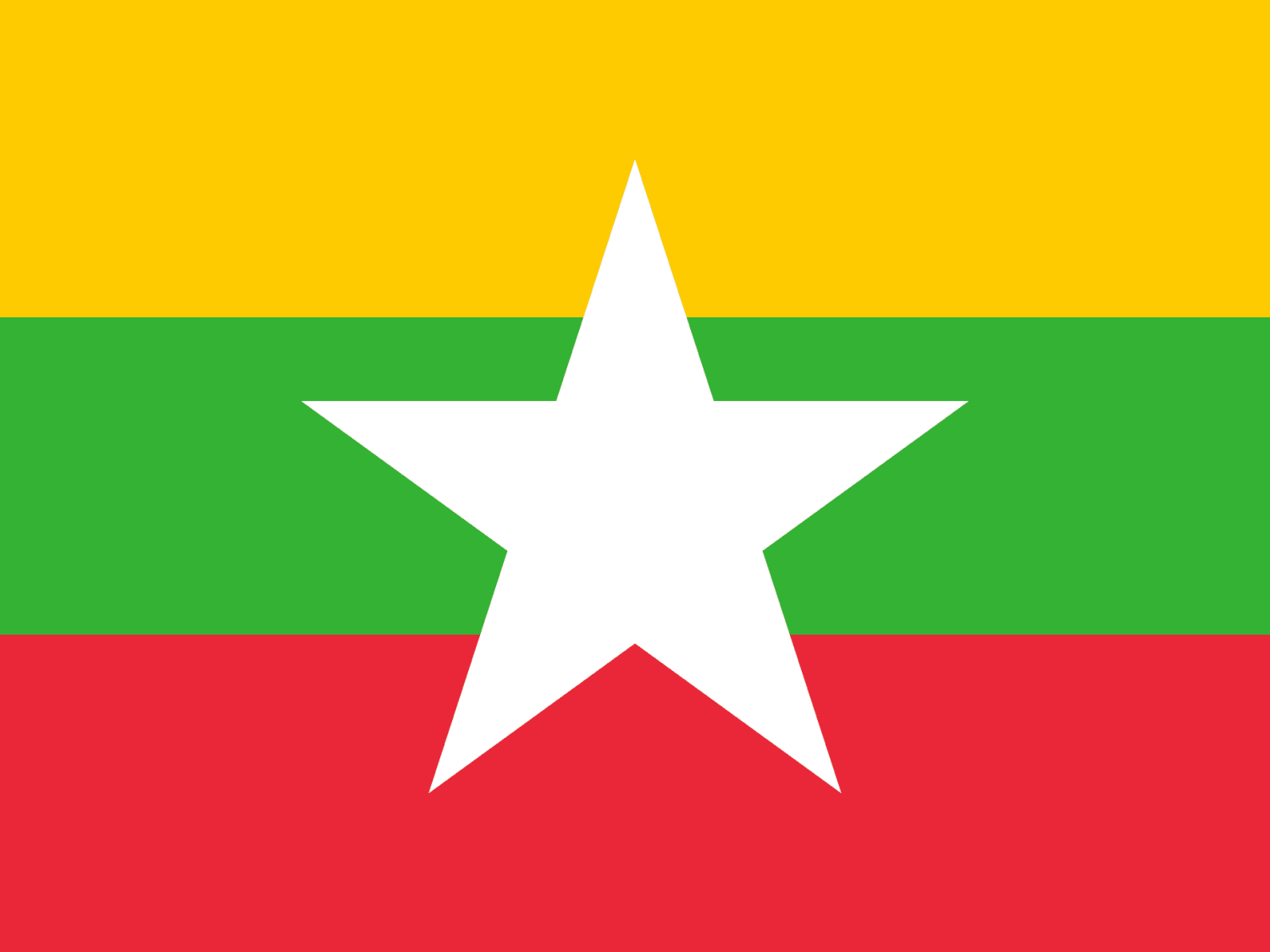Moving to Myanmar
Simply move better with reloqio
✔️ Get offers free of charge – No obligation, no worres.
✔️ Quality-tested partners – Reliable and experienced.
✔️ Selection in your region – Find the perfect offer and save up to 45%.

Overview
Introduction to Myanmar
Myanmar, formerly known as Burma, is a Southeast Asian country rich in cultural heritage, stunning landscapes, and historical significance. From the ancient temples of Bagan to the bustling city of Yangon and the serene Inle Lake, Myanmar offers a diverse array of experiences. The country is known for its deep-rooted Buddhist traditions, friendly people, and unique architecture. However, Myanmar also faces significant challenges, including political instability, economic difficulties, and underdeveloped infrastructure, which can make life challenging for expatriates.
Why Move to Myanmar
Moving to Myanmar provides the opportunity to live in a country with a rich cultural tapestry and a slower pace of life. For expatriates interested in development work, education, or exploring a relatively untouched part of Southeast Asia, Myanmar offers unique opportunities. The country’s affordability, natural beauty, and welcoming communities are significant draws. However, those considering a move should be aware of the challenges, including limited access to modern amenities, political uncertainties, and the complexities of navigating a developing country’s infrastructure and bureaucracy.
Cost of Living in Myanmar
The cost of living in Myanmar is generally low compared to Western countries, but it can vary significantly depending on location and lifestyle. In Yangon, the largest city, housing costs can be relatively high, especially in areas popular with expatriates. However, food, transportation, and daily necessities are very affordable. Imported goods and luxury items can be expensive due to high taxes and limited availability. While Myanmar offers a low cost of living overall, expatriates may need to budget for certain items and services that are either scarce or expensive, such as private healthcare and imported products.
Visa and Residency
Types of Visas
Myanmar offers several types of visas, including tourist, business, and work visas. Work visas are the most common for expatriates and require sponsorship from a Myanmar-based employer. The process involves submitting various documents, such as proof of employment, a valid passport, and sometimes a criminal background check. Business visas are available for those conducting short-term business activities. Tourist visas are easy to obtain for short visits but do not permit employment. It’s important to apply for the correct visa type and ensure all documentation is accurate to avoid delays or complications.
Requirements for Obtaining Residency
Obtaining residency in Myanmar typically begins with securing a work visa. Once in the country, expatriates can apply for a long-term stay permit, which is usually tied to their employment. The process involves submitting proof of employment, housing arrangements, and sometimes a health check. Residency permits are generally valid for one year and can be renewed as long as the expatriate remains employed. The process can be bureaucratic, and it is advisable to work closely with your employer or a legal advisor to navigate it successfully. Permanent residency is rare and generally requires long-term commitment or investment in the country.
Renewing Residency
Renewing residency in Myanmar involves extending your work visa and stay permit. The renewal process typically requires submitting updated proof of employment and housing, along with any other relevant documents. It’s advisable to start the renewal process well before your current permit expires to avoid any legal issues. Employers often assist with the renewal process, but it’s crucial to stay informed about any changes in immigration laws and ensure all paperwork is submitted on time.
Finding Accommodation
Popular Neighborhoods in Myanmar
In Yangon, popular neighborhoods for expatriates include Dagon Township, Bahan Township, and Inya Lake area. Dagon Township is known for its colonial architecture, proximity to downtown Yangon, and a variety of dining and shopping options. Bahan Township, located near Shwedagon Pagoda, offers a mix of modern and traditional housing with good access to international schools and expatriate-friendly amenities. The Inya Lake area is more residential and quieter, with larger houses and green spaces, making it popular among families. Housing in these areas can be expensive by local standards, but they offer the best amenities and conveniences for expatriates.
Renting vs Buying Property
Renting is the most common option for expatriates in Myanmar, as property ownership is generally restricted to citizens. Rental properties are available in major cities like Yangon and Mandalay, with prices varying significantly depending on location, size, and quality. Leases typically require a security deposit and the first month’s rent in advance. Buying property in Myanmar is generally not an option for foreigners, except under specific circumstances, such as through a long-term lease or a joint venture with a local partner. It’s advisable to work with a reputable real estate agent and legal advisor when searching for accommodation.
Tips for Finding Accommodation
When searching for accommodation in Myanmar, consider factors such as proximity to work, access to public transportation, and availability of amenities like schools, healthcare, and shopping centers. Working with a local real estate agent can be helpful, especially for expatriates unfamiliar with the market. It’s important to inspect properties carefully before signing a lease, as the quality of housing can vary widely. Be prepared to negotiate rental terms, and ensure that all lease agreements are clear and legally sound. Given the limited availability of high-quality housing, it’s advisable to start your search early, particularly in popular expatriate areas.
Myanmar’s location in Southeast Asia offers opportunities for travel and exploration in neighboring countries. For those interested in exploring the region, the cultural richness and historical sites of Thailand, the ancient temples of Cambodia, or the vibrant cities of Vietnam are all within reach.
Settling In
Healthcare System in Myanmar
The healthcare system in Myanmar is underdeveloped, with limited access to high-quality medical care, particularly outside major cities like Yangon. Public healthcare facilities are available but often lack modern equipment and resources. Many expatriates prefer to use private clinics, which offer higher standards of care and sometimes English-speaking staff, but these can be expensive. For serious medical conditions, expatriates often travel to neighboring countries, such as Thailand or Singapore, for more advanced care. It is essential to have comprehensive health insurance that includes coverage for private healthcare and medical evacuation, as the local healthcare system may not meet international standards.
Education System in Myanmar
Myanmar offers a limited range of educational options for expatriate families. Public schools follow the Myanmar curriculum and teach primarily in Burmese, which can be challenging for non-Burmese-speaking children. Most expatriate families opt for international schools, which offer curricula based on British, American, or International Baccalaureate (IB) systems. These schools are primarily located in Yangon and are known for their small class sizes and personalized attention, though fees can be high. Early application is recommended, as spaces in international schools can be limited, particularly in popular grades.
Cultural Etiquette and Customs
Myanmar is a country with deep respect for tradition and a strong Buddhist influence. Understanding and respecting local customs is important for expatriates. Hospitality is a key aspect of Myanmar culture, and it’s common to be invited to homes for meals, where showing appreciation for the food and hospitality is essential. Dress codes are generally modest, especially when visiting religious sites or rural areas. Building personal relationships is important in both social and business settings, and taking the time to understand local customs and language, even at a basic level, can greatly enhance your experience in Myanmar. Additionally, it’s important to be aware of the country’s political sensitivities and to approach discussions on politics with caution.
{filterable_table}
Ready for your move to Myanmar? Get free quotes now!
Enquire about moving offers here and get quick answers with cost estimates.
It only takes 2 minutes and you can save up to 45% on your move to Myanmar!
